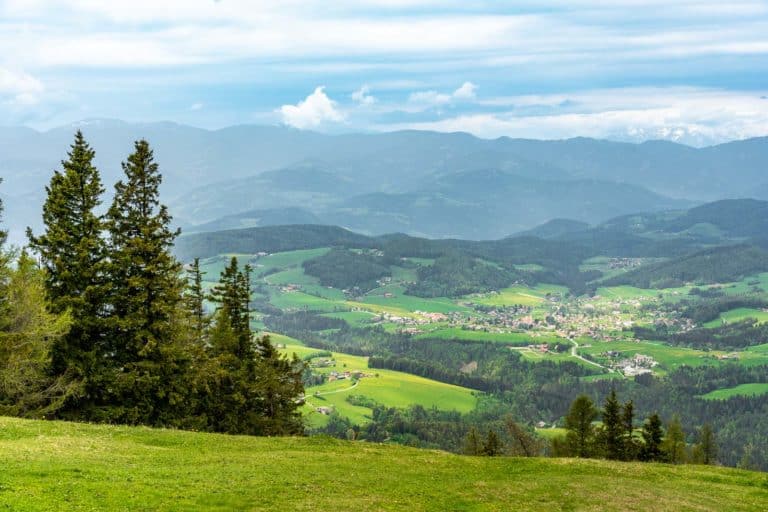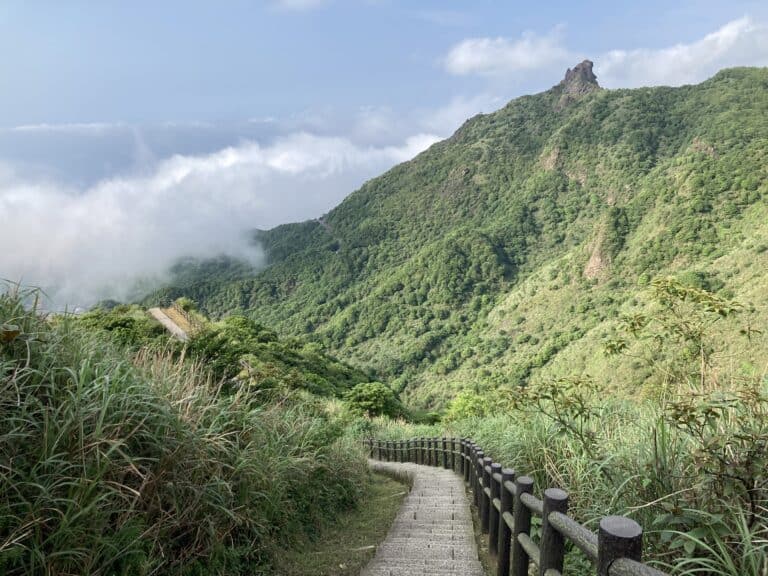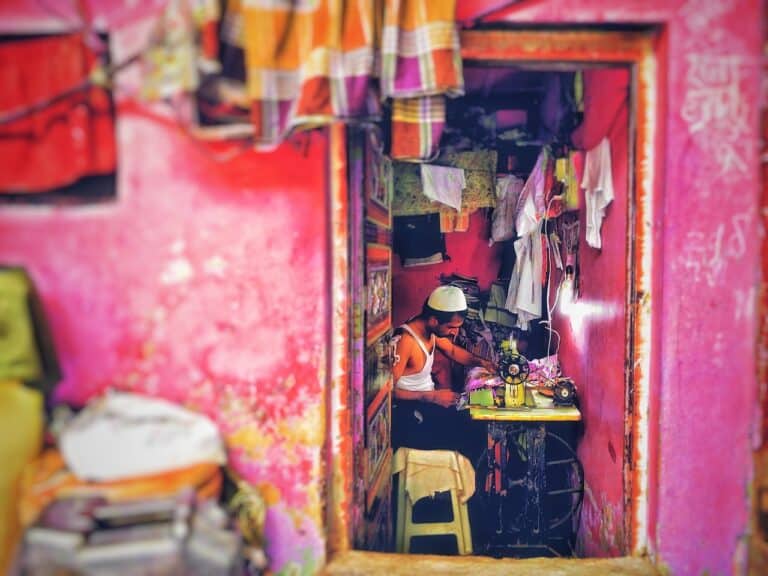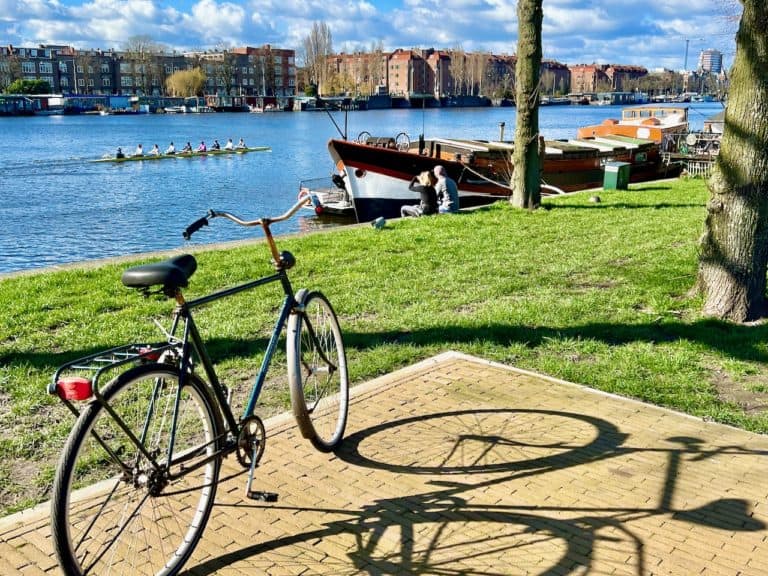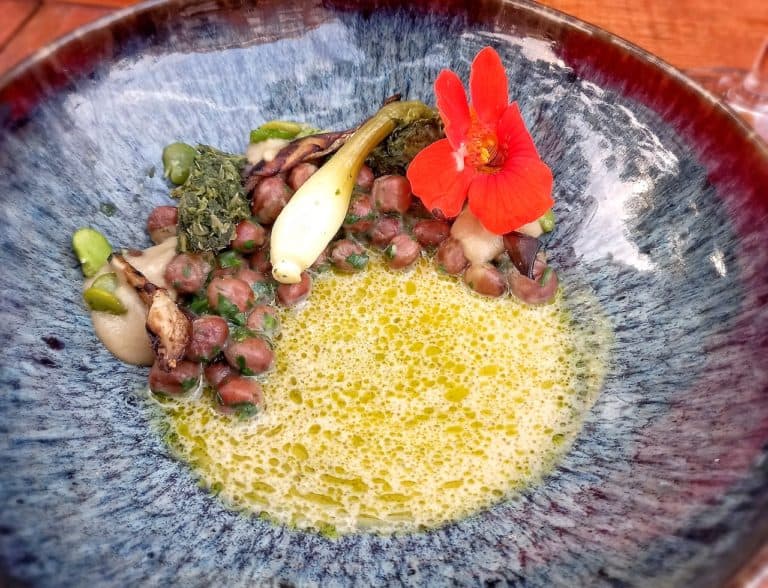A Walking Tour of Graz
By Keith Jenkins

A Healthy and Eco-Friendly Journey Through History, Culture and Sustainability
Graz, Austria’s second-largest city, is a treasure trove of historical and cultural landmarks, all easily accessible on foot. This vibrant city, recognized as a UNESCO World Heritage Site and UNESCO City of Design, offers a perfect blend of old-world charm and modern-day innovation. Embarking on a Graz walking tour allows you to soak in the city’s beauty at your own pace and it’s an excellent low-emission way to explore the city, minimizing your carbon footprint while maximizing your experience!
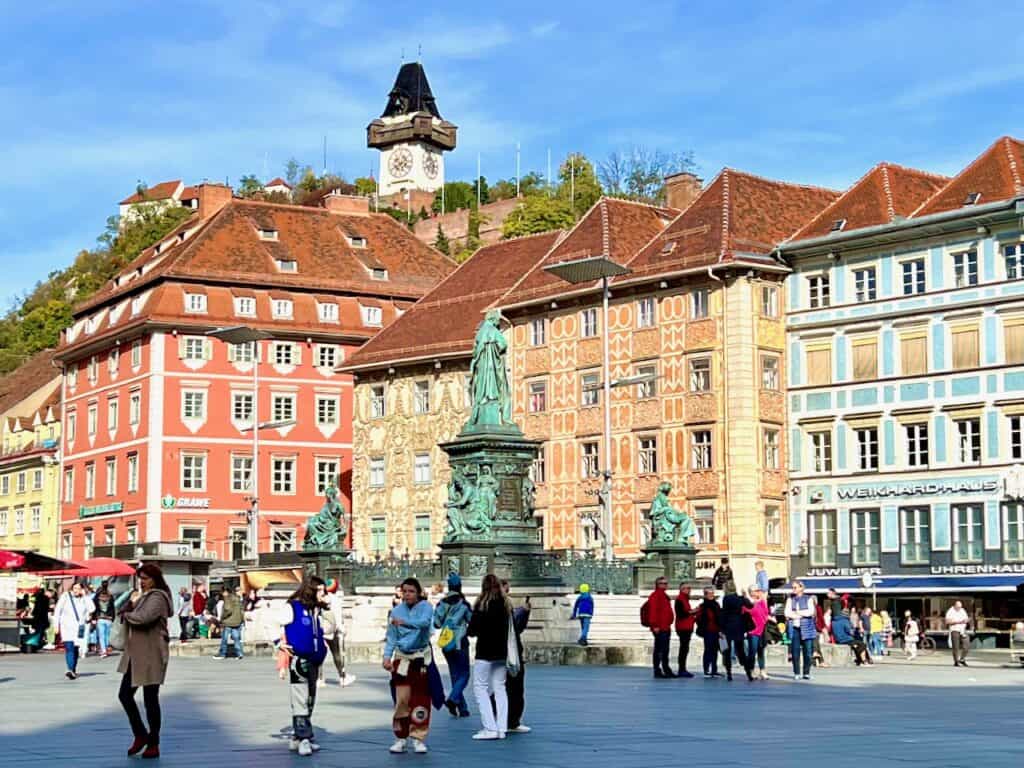
The map below features a walking route that covers the top attractions. Graz is not only rich in history and culture but also in its commitment to sustainability. Along your walking tour, you will find numerous eco-friendly shops and eateries that reflect the city’s green and community-led ethos.
Bring a reusable water bottle with you because there are 120 water fountains in and around the city. If you’re not near any of these fountains, look out for the ‘Refill Graz’ signs in the windows of cafés, restaurants and shops, where you can fill up with tap water for free.
It’s a relatively easy walk – the only spot that’s a bit challenging to get to on foot is the Schlossberg (Castle Hill), but no worries. You can take the elevator or the funicular to reach the top. I recommend taking it slow to soak up the city’s unique vibes. Split this route into two days, with the old town on the first day and the left bank (Lend and Gries) on day two.
Top places to visit in Graz – a walking route
Hauptplatz
This self-guided walking tour of Graz starts at Hauptplatz, the main square in the heart of the city. This bustling square is surrounded by stunning baroque architecture, with the majestic Town Hall (Rathaus) as its centerpiece. The square is also home to the Erzherzog Johann Fountain, a tribute to the popular Archduke Johann of Austria, known for his contributions to the region’s development.
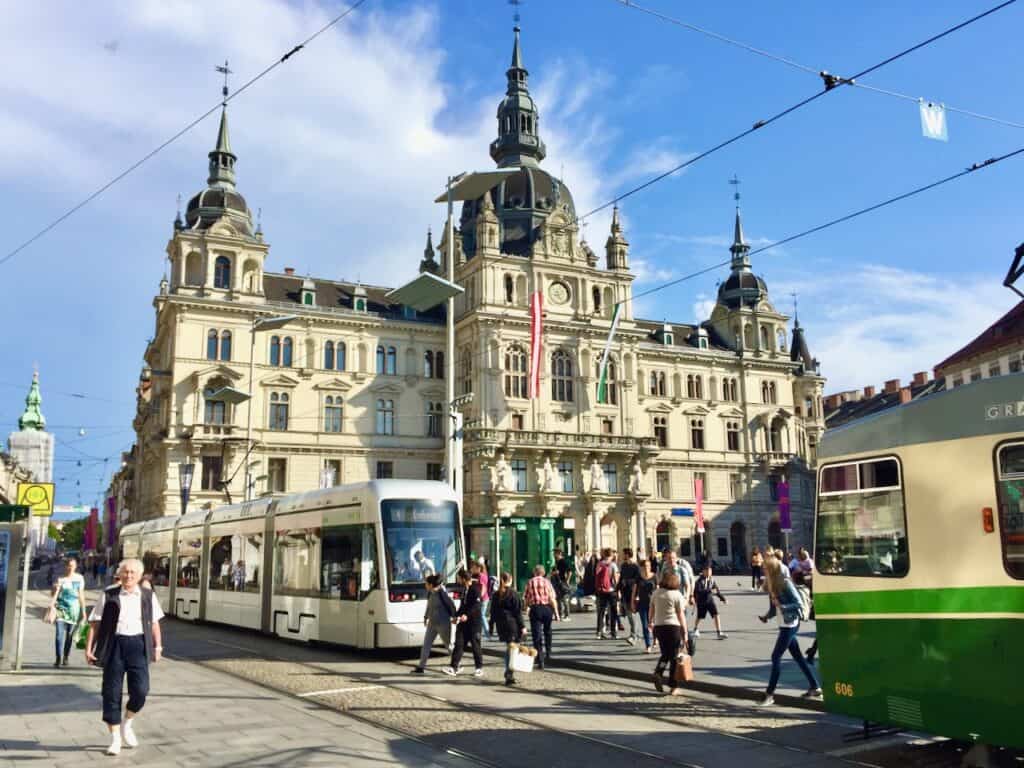
From here, continue northwest along Sackstrasse to Schlossbergplatz.
Graz Clock Tower
Our next stop is the Graz Clock Tower (Uhrturm) atop Castle Hill. At Schlossbergplatz, you can choose to climb the zig-zag staircase to the top, or take the elevator. There’s another (fascinating) way to reach the top: a tunnel that leads inside Castle Hill. The tunnel cuts right through the hill in a gradual ascent. Along the way, you’ll pass a secondary network of tunnels and massive halls that were built as air raid shelters. At the top of the tunnel, turn left and continue up the hill to the Clock Tower.
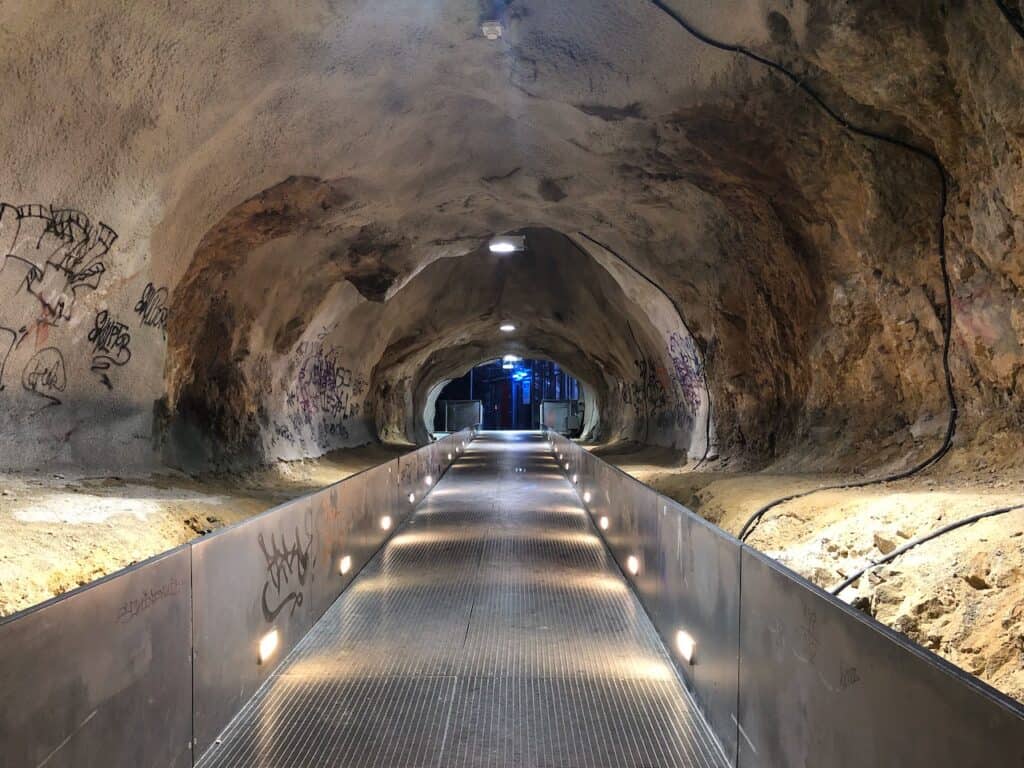
The iconic Graz Clock Tower (Uhrturm), with its distinct clock faces, offers panoramic views of the city and is a symbol of Graz’s enduring spirit. While you’re looking at the clock face, try to figure out the time. 😉
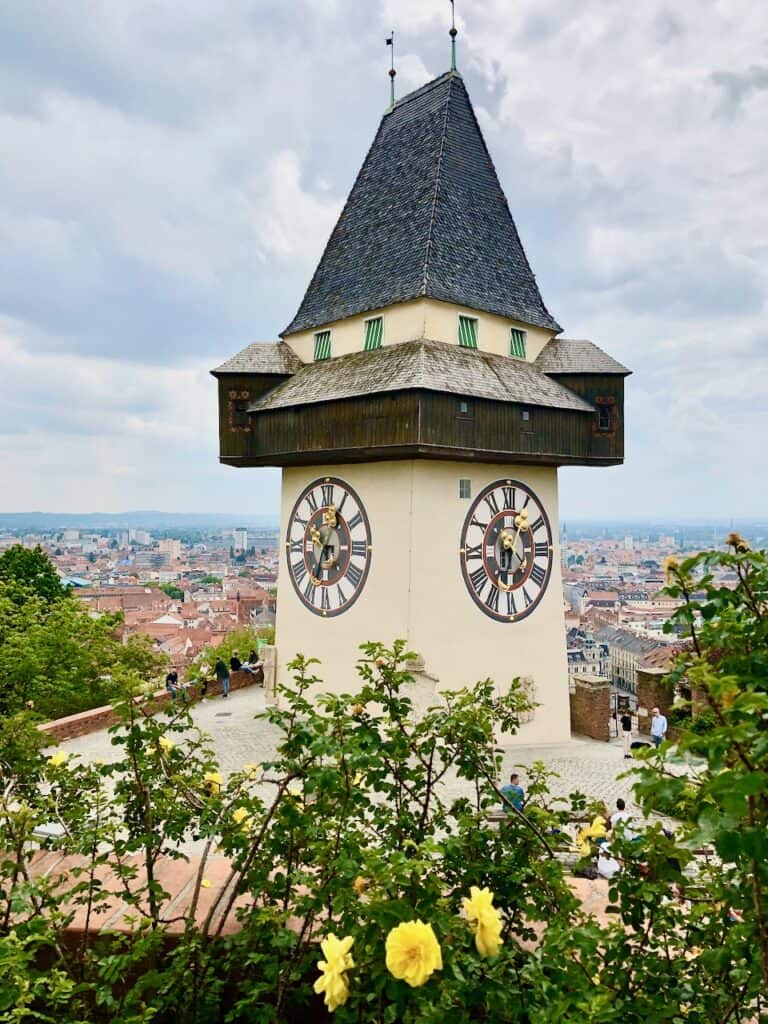
Drop by at Aiola Upstairs café/restaurant for a well-deserved refreshment or a terrific farm-to-table meal.
Schlossberg (Castle Hill)
From the clock tower, continue this fantastic cardio workout by continuing up Castle Hill. It’s a lovely walk up amidst lush greenery and gorgeous city views. At the top of the hill, you’ll find the Chinese Pavilion and the Schlossberg Museum.
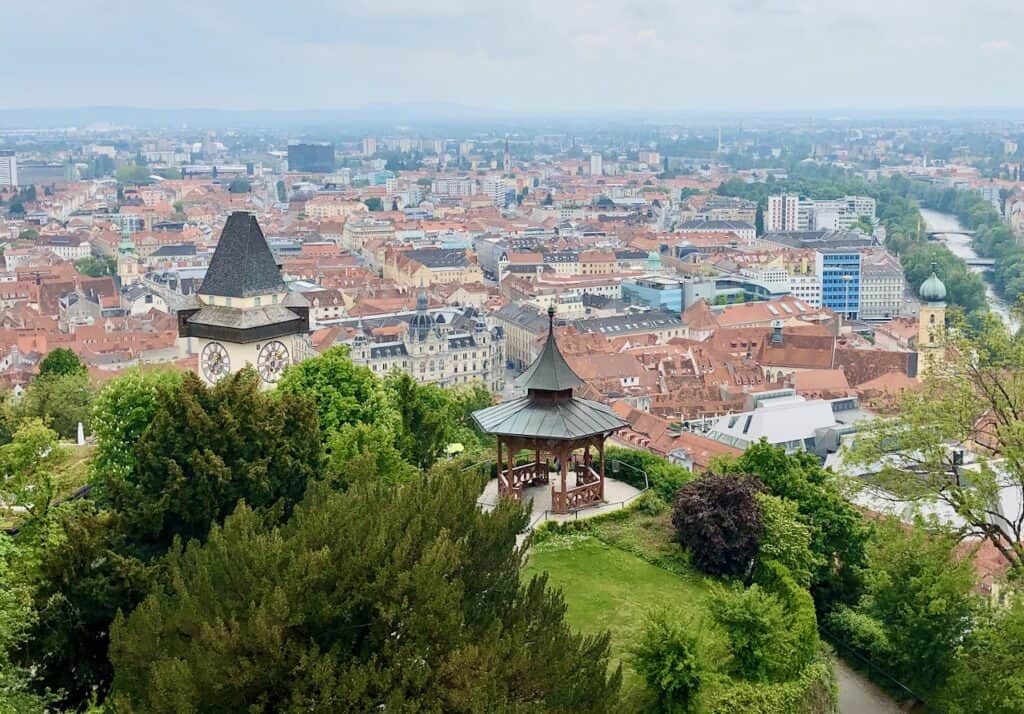
The Historic Old Town
No walking tour of Graz would be complete without wandering through its historic Old Town (Altstadt). The cobblestone streets and narrow alleyways are lined with beautifully preserved medieval and Renaissance buildings – characteristics that contributed to the old town’s listing as a UNESCO World Heritage site.
Descend Schlossberg to Karmeliterplatz, a popular spot for street events and concerts. Continue down the lovely Sporgasse, a bustling street with shops and cafés. Along the way, pop into one of the side lanes to see one of the many hidden courtyards in the old town.
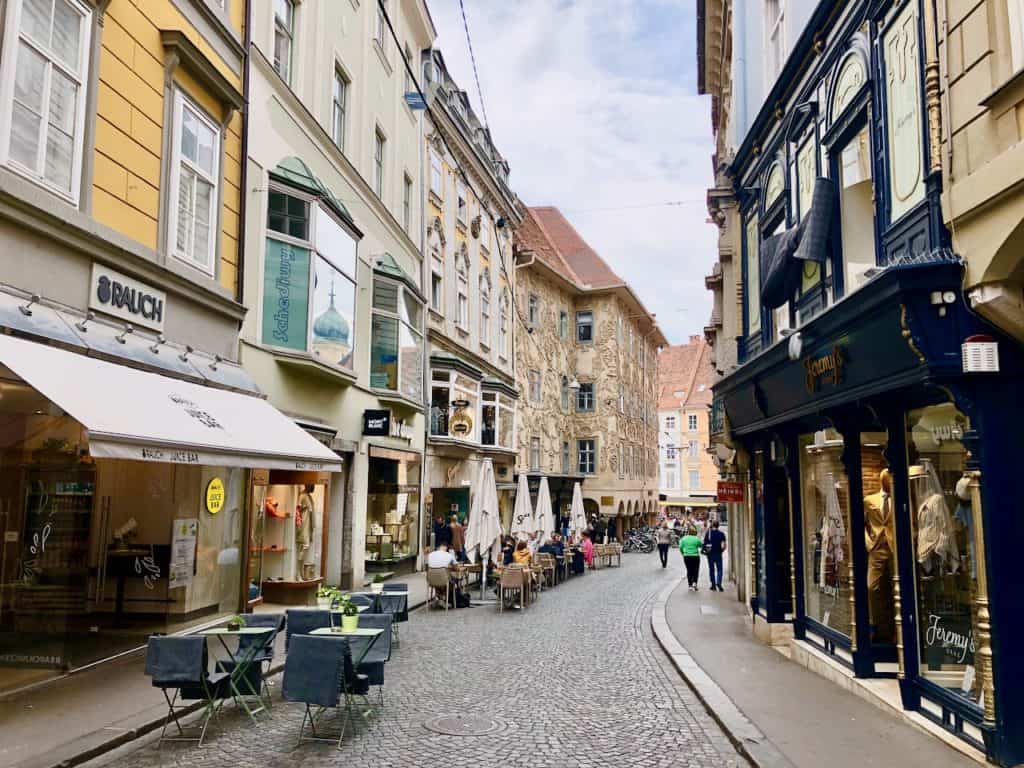
For the conscious shoppers among us, check out Offline Retail (Sporgasse 36), a store specialized in upcycled products. Other stores to look out for are HUMANA (Sporgasse 21), a vintage and second-hand clothing store, and Grüne Erde (Sporgasse 27), an eco-friendly/fairtrade home furnishing and accessories store.
Take a left at Hofgasse. The first thing that will catch your eye is the Hofbäckerei Edegger-Tax, the former Imperial baker. The stunning wooden façade of the bakery is in itself worth a stop.
Double-spiral staircase
Near the end of Hofgasse, turn left into the courtyard of the Burg. Head to the cylindrical tower at the far end of the courtyard for one of my favourite Graz attractions: the double-spiral staircase. This amazing stone staircase in Gothic style was built in the 16th century, and is an absolute masterpiece. It’s also called “the stairs of reconciliation”, as two people ascending/descending the opposite staircases will always meet again at each level.
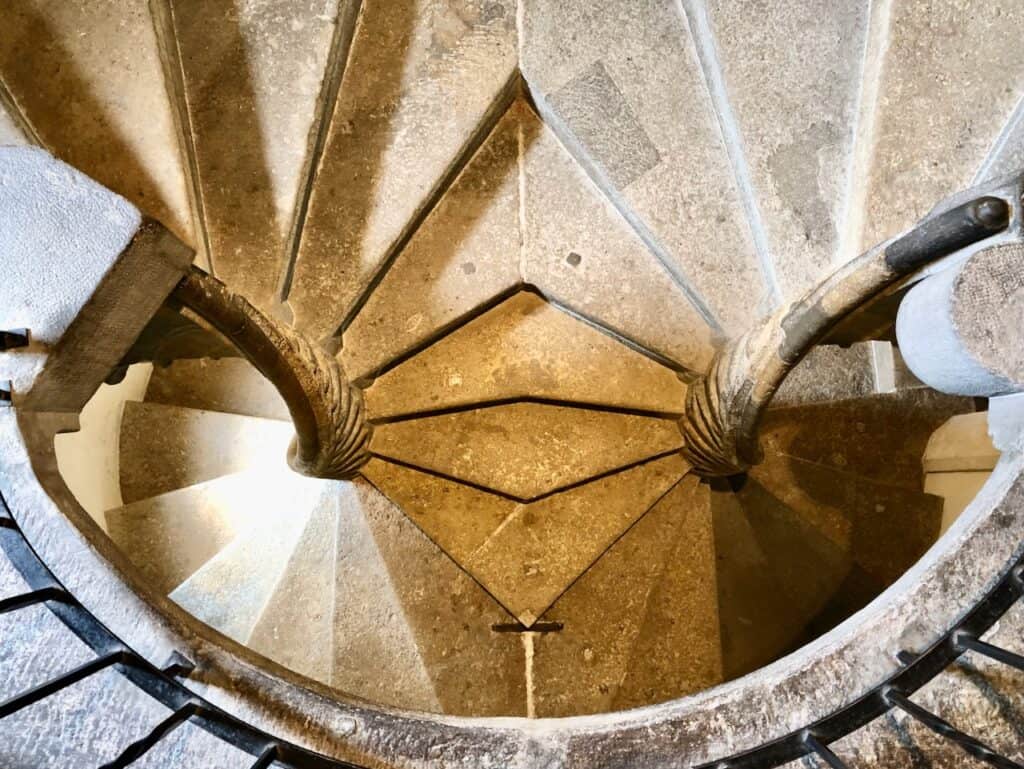
From the Burg, you can continue to the lush Graz Burggarten (City Park) next door or cross the road to the Cathedral.
Graz Cathedral
Just across the road from the Burg stands the Graz Cathedral, a harmonious blend of Gothic and Baroque styles. Its sober exterior contrasts with the striking interior adorned with intricate frescoes and Baroque furnishings.
Mausoleum of Emperor Ferdinand II
Next door to the Cathedral, you’ll find the impressive 17th century Mausoleum of Emperor Ferdinand II. Crowned by beautiful turquoise domes, the Mausoleum is one of the top historic and cultural sights in Graz.
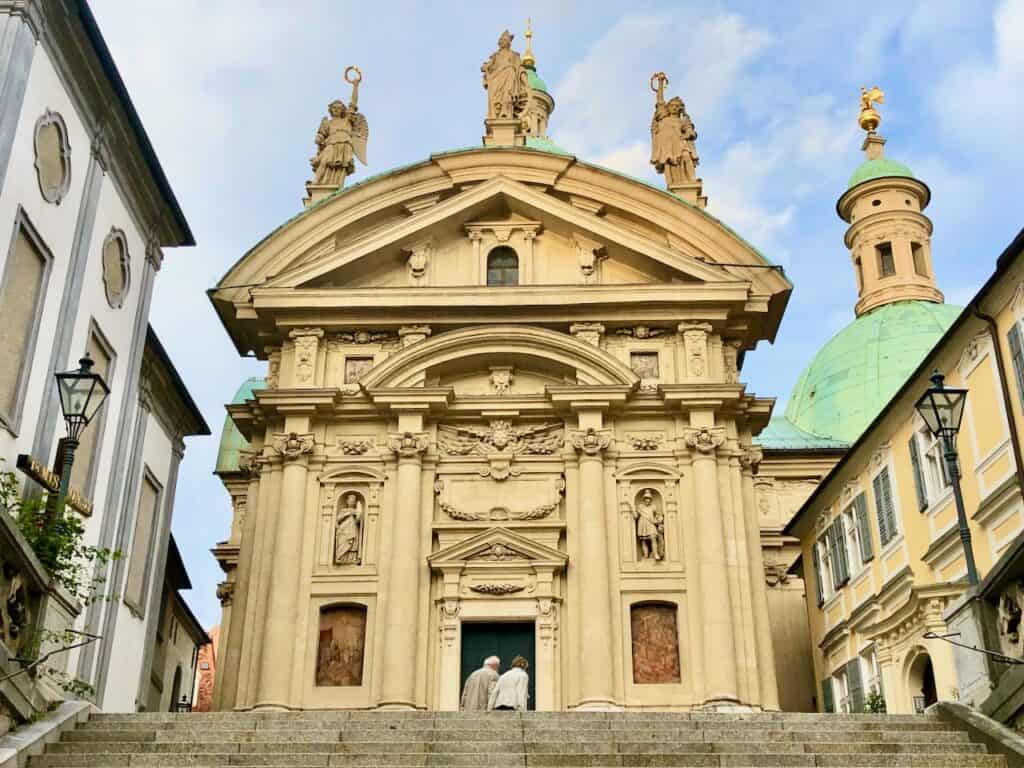
Glockenspiel
From the Mausoleum, explore the maze of streets and alleys that gradually descend to Herrengasse. Don’t miss the Glockenspiel, a historic carillon that plays 3 times a day (11am, 3pm and 6pm). The Glockenspielplatz and adjacent Mehlplatz are lovely squares for a refreshment and to people-watch.
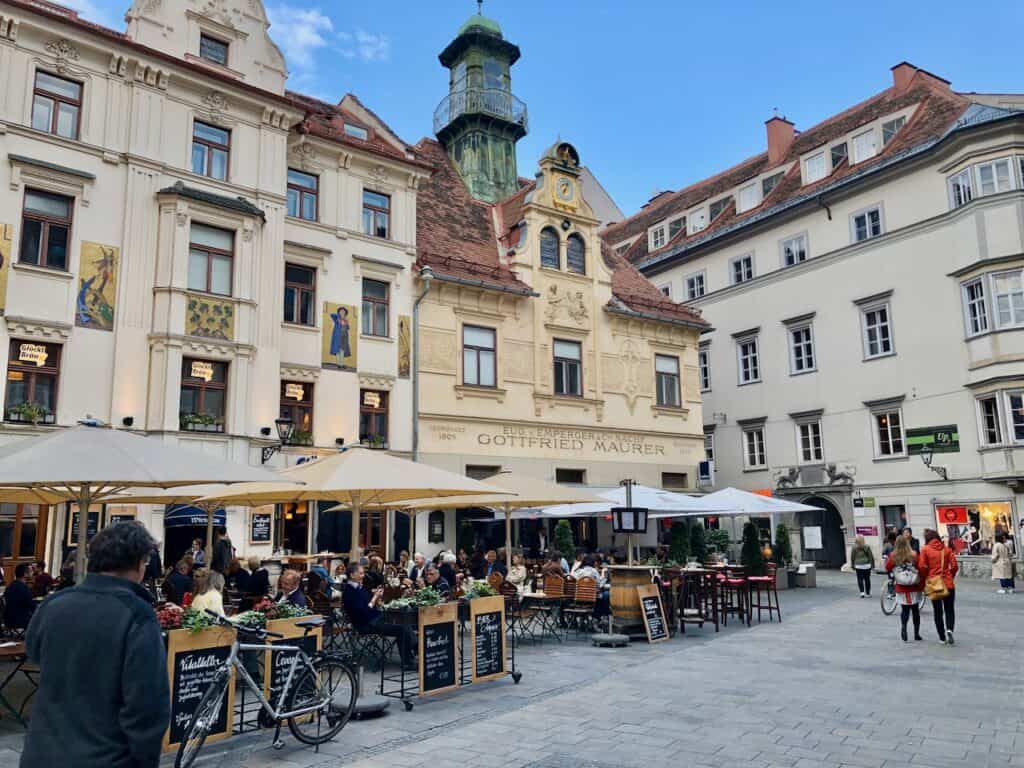
A sustainability-minded fashion store that’s worth checking out in this area is Peaces Biomode, where hand-printed garments are crafted from vegan and organic fabrics.
Landhaus
Continue down the hill to the Landhaus, a stunning Renaissance palace with its famous arcaded courtyard. In this impressive building, you’ll find the Graz tourist office as well as the Armoury Museum that houses the world’s largest collection of historic weapons.
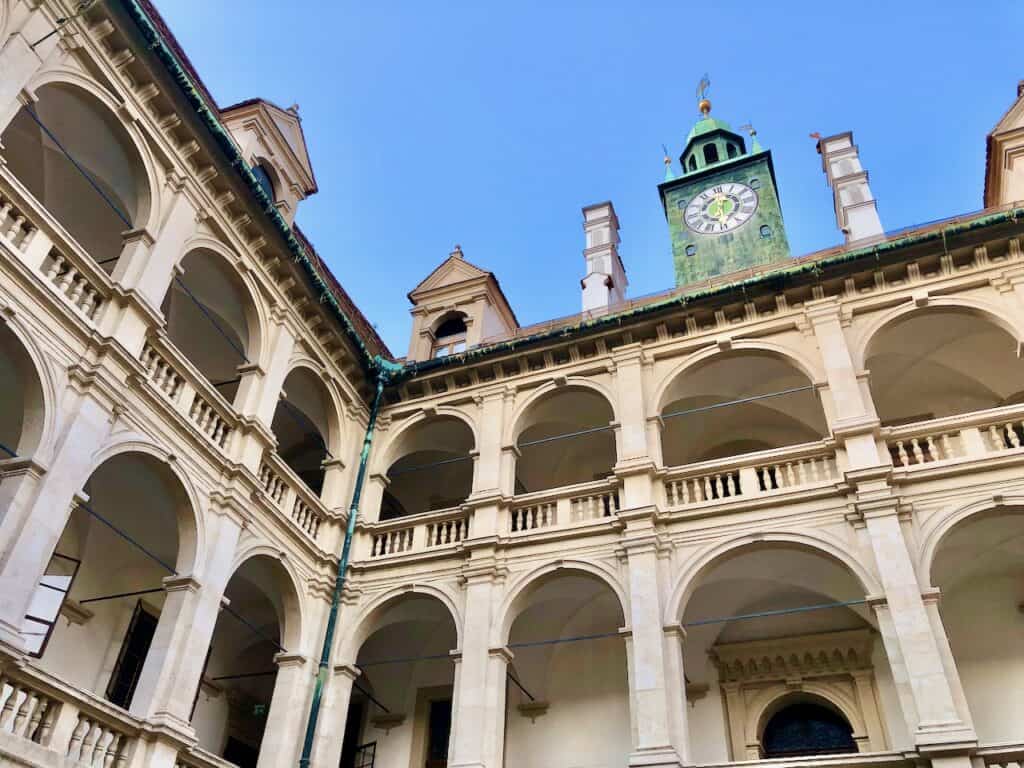
In the vicinity, you’ll also find one of my favourite restaurants in Graz: Landhauskeller, located inside a gorgeous courtyard. The restaurant specialises in Styrian cuisine and has a great collection of regional wines.
Joanneumsviertel
Walk along the atmospheric Schmiedgasse, with its many shops, cafés and restaurants, before turning right to the Joanneumsviertel (Joanneum Quarter). This large cultural centre encompasses the New Gallery, Natural History Museum and Center of Science Activities. Read more about museums in Graz.
For a terrific vegan meal, I recommend Café Erde, a short walk away from Joanneumsviertel. If you fancy a top-notch coffee and home-made cake with locals, drop by at the cozy Coffee Ride café at Franziskanerplatz.
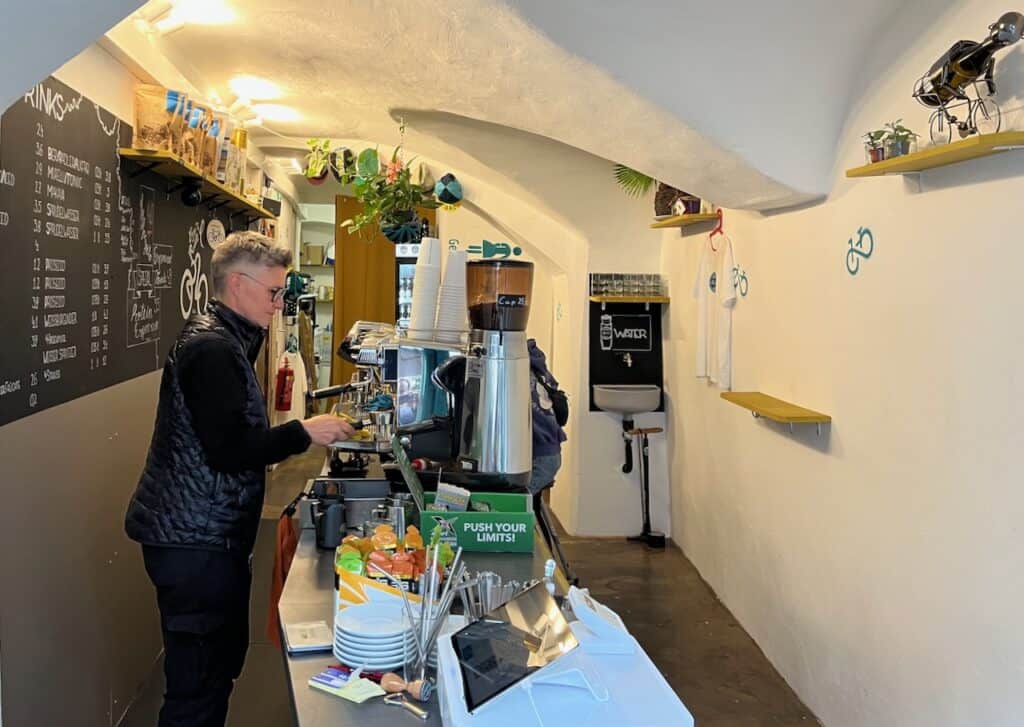
Mur River
This Graz walking tour continues (the following day) along the Mur River. A walking path lines the riverbanks, making it possible to escape the hustle and bustle of the city and simply listen to the rapids and enjoy the green surroundings. Follow the path to the Murinsel.
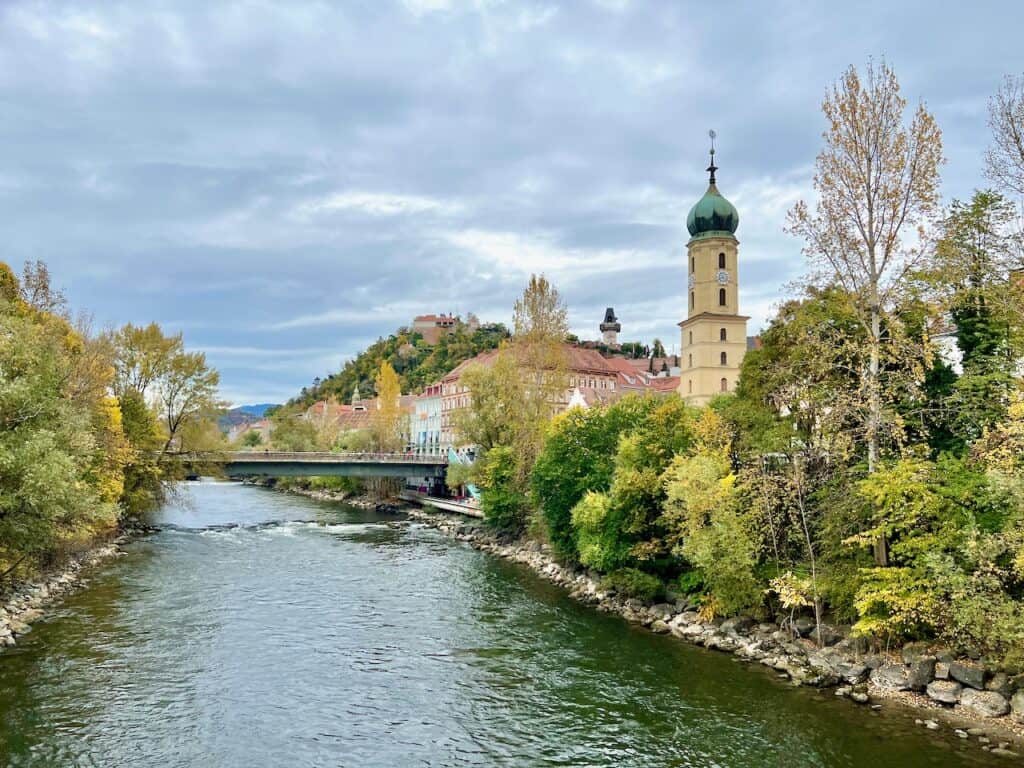
Murinsel
You can’t miss the Murinsel, a unique floating platform in the middle of the Mur River. Designed by New York artist Vito Acconci, this modern marvel is both a bridge and an island, featuring a café and an amphitheater. The Murinsel represents Graz’s innovative spirit and its commitment to blending nature with urban development.
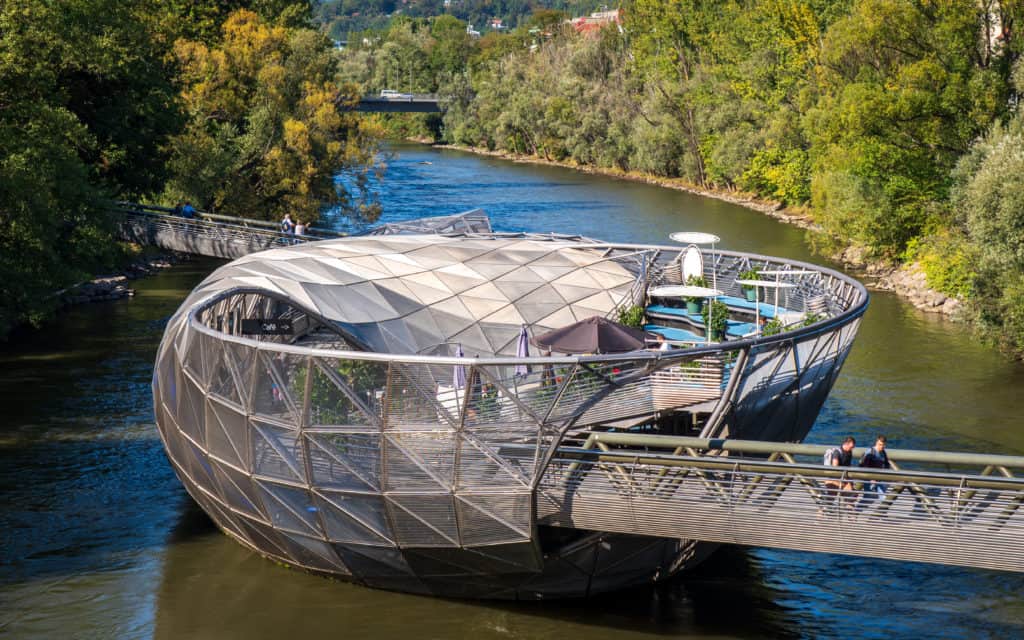
Lend
Cross the Mur River via Murinsel to the trendy Lend neighbourhood. Once a derelict part of the city, Lend is nowadays a vibrant place with a strong sustainable and community-centric ethos.
Each morning, between 6am and 1pm (except Sundays and public holidays), farmers from the surrounding region arrive at Lendplatz to sell their freshest produce. The Lend farmers market is one of my favourite places to visit in Graz. It’s a lively place where you can also just sit back with a coffee and enjoy the bustling market.
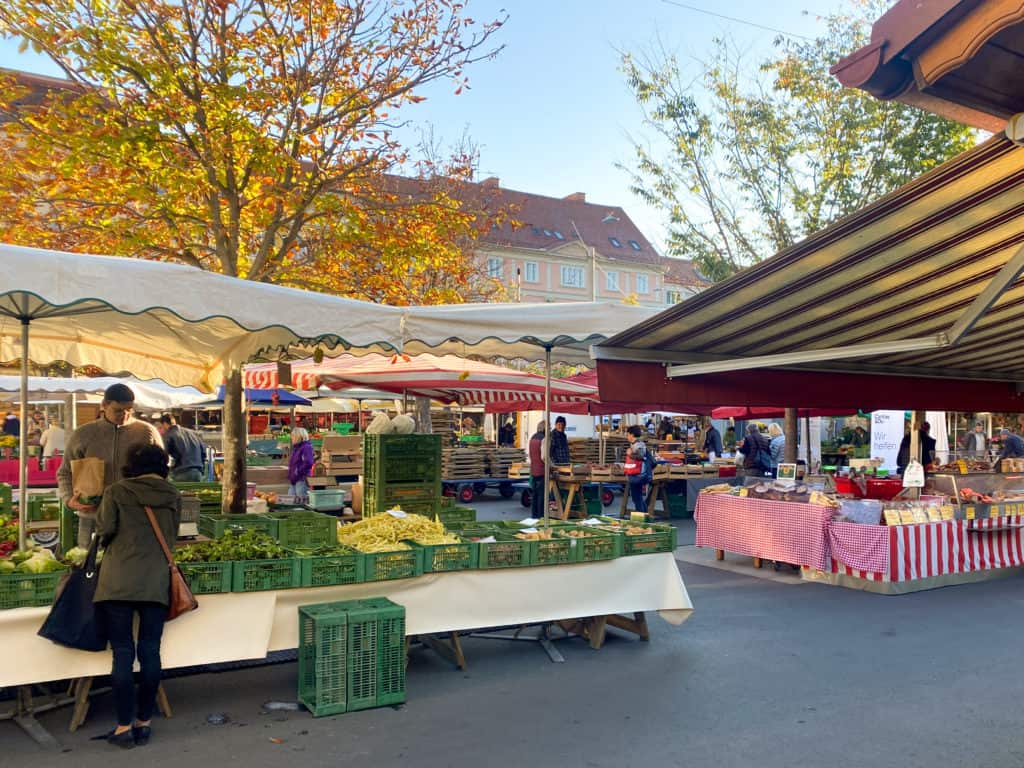
Just behind Lendplatz, you’ll find BO SUPPE, a literal hole-in-the-wall that serves delicious, organic soups.
Sustainable and community businesses in Lend
Explore a bit more of the Lend neighbourhood and continue down Mariahilferstrasse. This broad street is home to numerous stores, pubs and restaurants. For sustainable shopping, pop into tag.werk, a fashion accessory store that focuses on youth employment, sustainable design and upcycling.
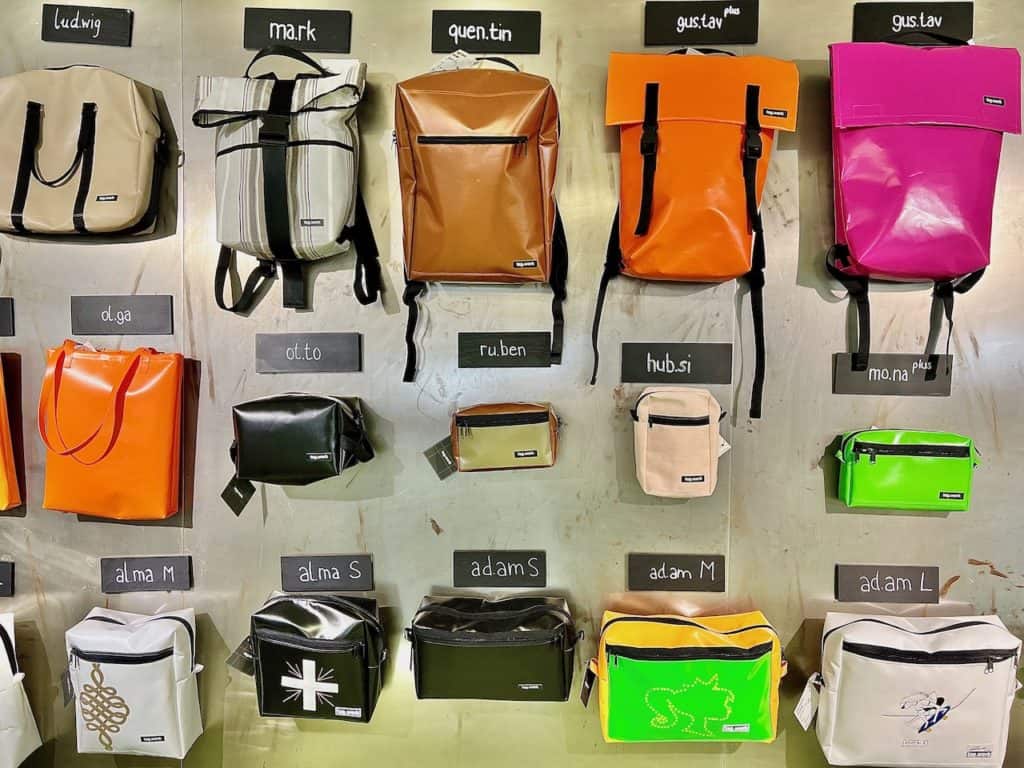
Further down the street, check out Hummel, a women-owned Levantine cuisine restaurant, where seasonal low-waste mezze plates are served. Across the street, pop into PANE. This bakery offers a delicious range of breads but also sells yesterday’s bread for a hefty discount. The proceeds of the ‘old’ bread is donated to local charities.
Kunsthaus Graz
You’ll soon find yourself at Kunsthaus Graz, affectionately known as the “Friendly Alien.” This contemporary art museum, with its distinctive biomorphic shape, stands in stark contrast to the traditional architecture of the city.
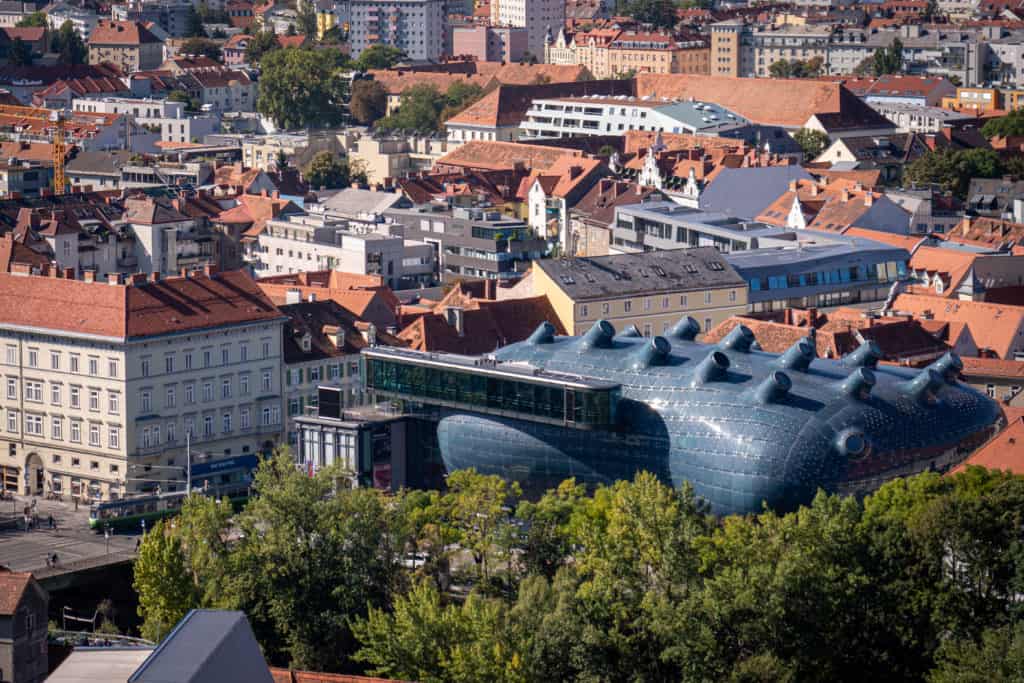
The Kunsthaus showcases modern and contemporary art, making it a cultural hotspot for art enthusiasts.
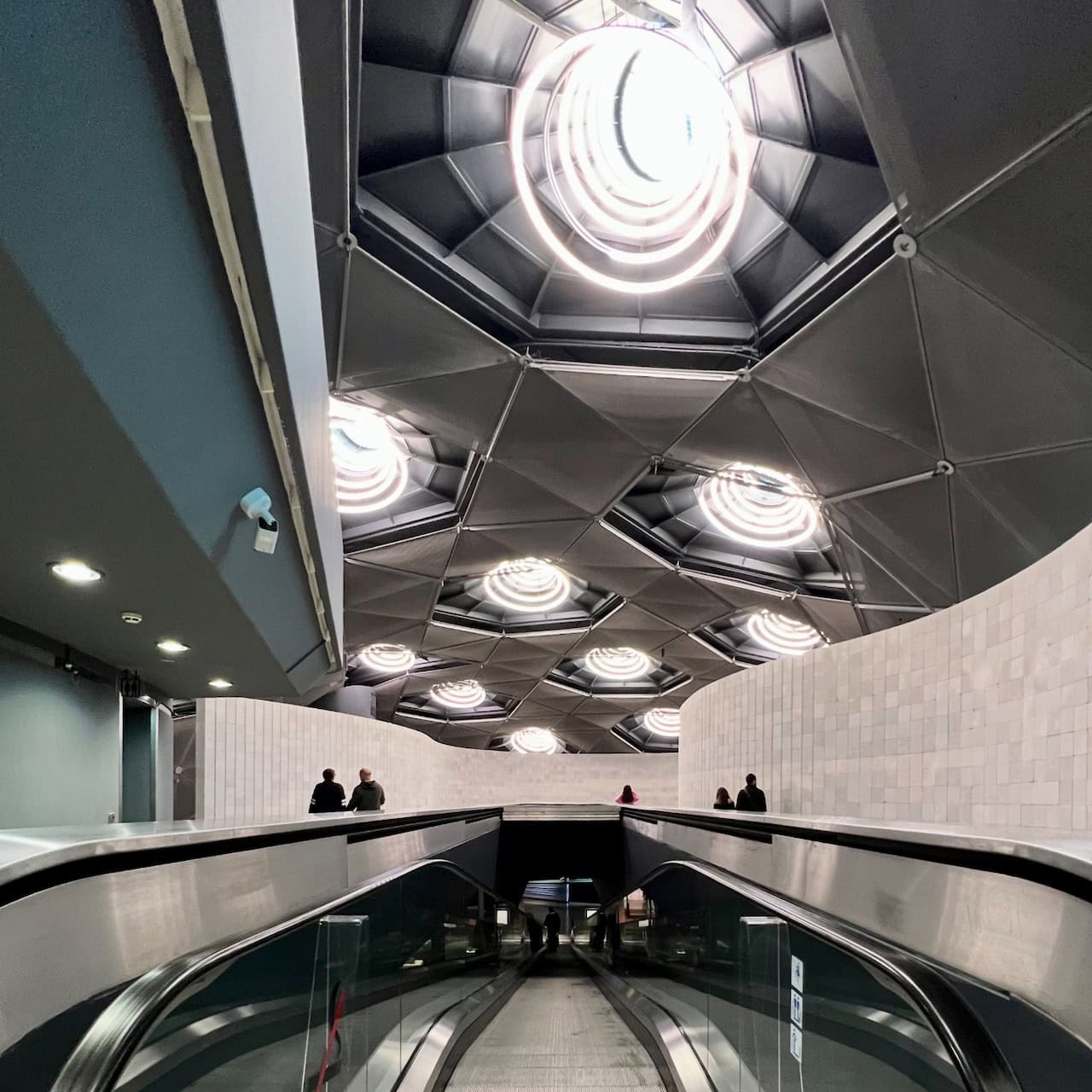
A walking tour of Graz is not just a journey through history and culture but also a step towards a healthier lifestyle and a more sustainable future. The city’s rich heritage, combined with its commitment to eco-friendly practices, makes it a perfect destination for mindful travelers. As you traverse the cobblestone streets, climb the verdant hills, and explore the innovative spaces, you will discover that Graz is a city where the past and future harmoniously coexist, offering a unique and enriching experience.
Bio
Keith Jenkins is the Founder and Publisher of the award-winning Velvet Escape luxury travel blog. Based in Amsterdam, Keith has visited more than 80 countries across six continents in search of the best travel experiences. He often writes about his love for art/design, history, architecture, nature and food/wines.


